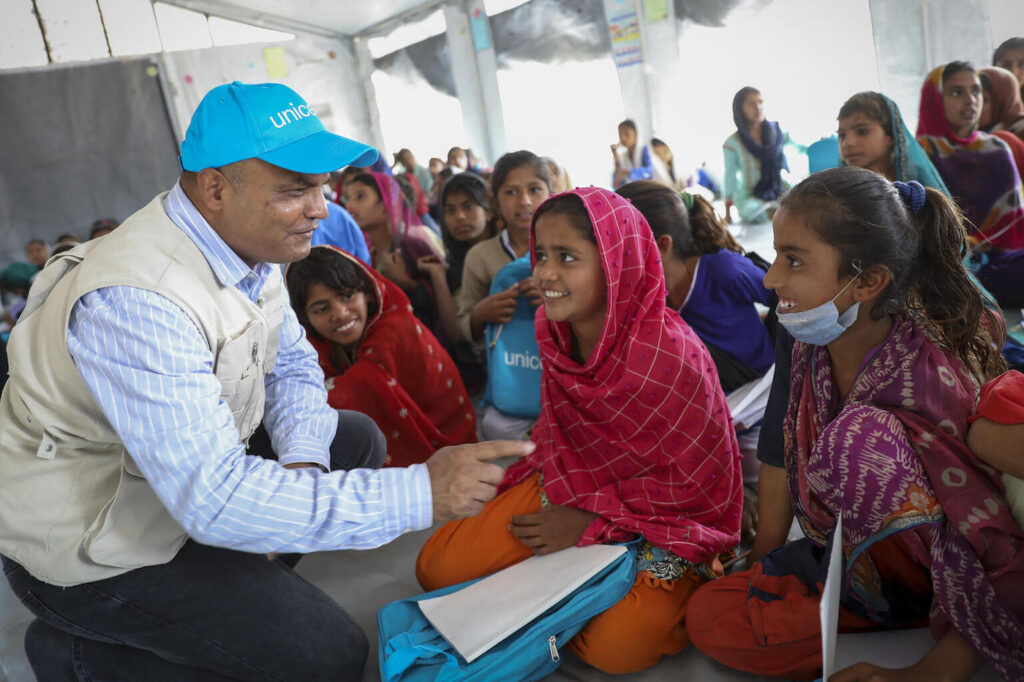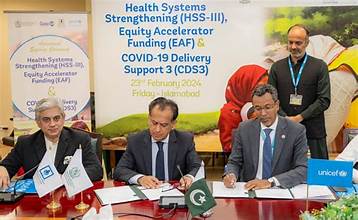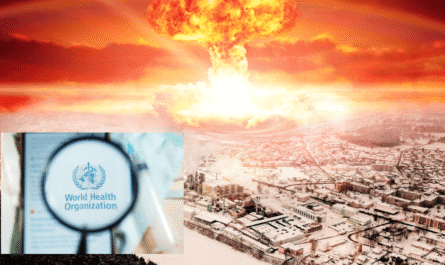Pakistan has called on the United Nations International Children’s Emergency Fund (UNICEF) to take immediate action in resolving delays caused by India in the supply of vaccines. The appeal highlights concerns over public health risks and the urgent need for timely delivery of essential medicines, particularly for vulnerable populations, including children and expectant mothers.
Background of the Issue
For months, Pakistan has faced significant challenges in receiving vaccines that are part of international health programs. Many of these vaccines, vital for routine immunization campaigns, are supplied through UNICEF’s procurement mechanisms. However, according to Pakistani officials, India’s delays in the release of these consignments are disrupting public health schedules.
These vaccines are critical for preventing diseases like polio, measles, and hepatitis. Pakistan’s Ministry of Health has stressed that any delay can have serious consequences, especially in remote areas where immunization drives are already hard to execute.
Pakistan’s Concerns
Pakistan’s representatives have expressed that vaccine delays are not only a logistical problem but also a matter of regional health security. Immunization programs are time-sensitive and work on strict schedules to ensure population-wide protection. Delays could potentially lead to outbreaks of preventable diseases.
Government officials have emphasized that health crises do not respect borders, and such delays could impact the region at large. Pakistan has therefore requested UNICEF’s direct intervention to ensure timely delivery.
UNICEF’s Role in Global Vaccine Supply

UNICEF is one of the world’s largest vaccine buyers, supplying nearly 2 billion doses annually to more than 100 countries. It works closely with governments, health organizations, and international partners to ensure access to life-saving vaccines.
In this case, Pakistan is urging UNICEF to use its influence and operational networks to resolve bureaucratic and political hurdles, ensuring the uninterrupted flow of essential health supplies.
India’s Position
While Indian authorities have not publicly addressed Pakistan’s statements in detail, delays in vaccine exports have been attributed in past situations to production bottlenecks, prioritization of domestic needs, and regulatory procedures. However, health experts argue that when vaccines are part of international commitments, all parties should prioritize their timely release, especially during critical health campaigns.
Potential Impact of the Delay
The consequences of vaccine delays could be far-reaching:
- Increased Health Risks: Without timely vaccination, children become susceptible to preventable diseases, risking community health.
- Program Disruption: Immunization campaigns rely on precise timing. Any delay can result in wastage of resources and loss of momentum.
- Regional Strain: The delay could affect neighboring countries if outbreaks occur due to low immunity coverage.
- Public Distrust: Delays may reduce public confidence in health initiatives and vaccination drives.
Pakistan’s Diplomatic Approach
Pakistan has maintained that its approach remains diplomatic and cooperative. The government seeks constructive engagement through international platforms, hoping that UNICEF can serve as a neutral facilitator in ensuring commitments are honored.
Officials are also working to strengthen domestic vaccine production capacity to reduce reliance on external sources in the long term. However, until such capacity is fully established, imports remain essential.
Global Perspective on Vaccine Equity

This dispute underscores the larger challenge of vaccine equity and timely delivery worldwide. The COVID-19 pandemic exposed deep inequalities in vaccine access, and the current situation serves as another reminder that health diplomacy must be prioritized over political or logistical disagreements.
International health experts believe that agencies like UNICEF play a crucial role in bridging gaps, ensuring that humanitarian and health needs are met without unnecessary delays.
Looking Forward
The resolution of this issue will require cooperation from all parties—India to expedite release processes, UNICEF to facilitate swift negotiations, and Pakistan to continue advocating for timely health interventions. Ultimately, the health of millions of children depends on efficient and timely vaccine supply chains.
Conclusion
Pakistan’s call to UNICEF to address India’s vaccine supply delay is more than just a diplomatic appeal—it is a matter of safeguarding public health. In a world still recovering from the impacts of the COVID-19 pandemic, the importance of timely vaccine delivery cannot be overstated. International cooperation, transparency, and prioritizing health over politics remain essential to preventing outbreaks and ensuring a healthier future for all.



